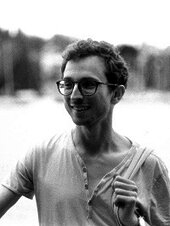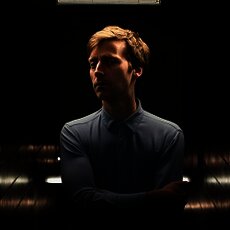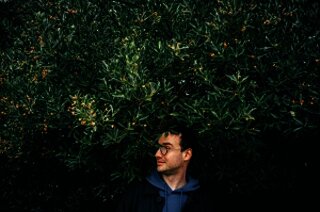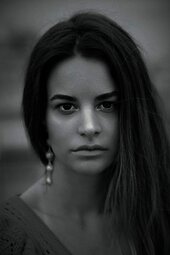Competition
Composers for 2027
Once more we would like to thank all composers, who have shared their works, materials and concepts with us for the international impuls Composition Competition in 2024/25. A jury consisting of three composers plus two musicians of Klangforum Wien (Pierluigi Billone, Chaya Czernowin and Elena Mendoza plus Wendy Vo Cong Tri and Mikael Rudolfsson) selected the following composers out of 163 valid applications sent in from 43 nations and five continents:
Omer Barash (*1995, Israel)
Louis Bona (*1990, France)
Marin Escande (*1992, France)
Hristina Šušak (*1996, Serbia)
These four composers will be commissioned by impuls to write new pieces for ensemble, that will be premiered in Graz at the impuls Festival in February 2027.
The impuls commissions come along with intensive exchange already beforehand with a highly renowned ensemble in the field of contemporary music such as Klangforum Wien, as well as extensive rehearsal possibilities. Needless to say the composers will also be invited by impuls to join the activities and premieres on spot, and additional music communication programs will be set up on top to support the introduction of the composers and diffusion of their works.
Omer Barash
Omer Barash’s music often addresses questions of betweenness and identity, considering both their sounding and conceptual aspects. Much of his work stems from personal interpretation of Hebrew texts and traditions, and the soundscapes that surround him. This approach has led him to projects that span ancient manuscripts and digital signal processing.
His work has been honored with such awards as the as the 1st prize of the Salvatore Martirano Award (2024), 1st prize of the Ensemble Écoute Composition Competition (2024), the “Achievement of the Year” award of ACUM (Israel’s Society of Authors, Composers and Publishers, 2024), and merit grants from the America-Israel Cultural Foundation (2018-2025), among others.
Barash’s music has been presented at the Wittener Tage für neue Kammermusik (2025), Cresc. Biennale (2023), Nuova Consonanza (2017), and CEME (2023) festivals; undertaken by ensembles such as Ensemble Modern (as part of ICCS young_professionals), Meitar, and the Israeli Contemporary Players; and by conductors and soloists such as Pierre-André Valade, Léo Warynski, Keren Motseri, and Benjamin Alunni.
Born in Israel in 1995, Barash studied instrumental and electroacoustic composition with Yinam Leef and Ari Ben-Shabetai (the Jerusalem Academy of Music and Dance), Philippe Leroux (McGill University), Karlheinz Essl (the University of Music and Performing Arts Vienna), and Claudia Scroccaro and Pierre Jodlowski (IRCAM). He is currently a doctoral fellow in Composition at Columbia University in the City of New York, where he has studied with Marcos Balter and Georg Friedrich Haas. He has also received important guidance from Franck Bedrossian, Chaya Czernowin, Farzia Fallah, and Amnon Wolman.

Luis Bona
Louis Bona began his musical journey by learning the viola, then the organ, in several conservatories in Paris. He developed in parallel to his classical education a brighter relation to the musical world through various musical encounters with Steve Mc Craven (Archie Shepp's drummer), Bertrand Burgalat and Jean Claude Vagnier (arranger/composer of Serge Gainsbourg's Melody Nelson).
After these different experiences, he began to compose and organised a series of concerts (2008). After graduating from the CRR in Paris (2009), he went to study viola at the Hochschule für Musik Hanns Eisler in Berlin, where he discovered a new approach to the instrument and sound with professor Walter Küssner (Berlin Philharmonic) and by performing contemporary music with the ensemble Echo. He was also involved in the founding of the musical theatre collective Hauen und Stechen, in which he arranged (and performed, both as a violist and actor) "re-appropriations" of operas.
In order to focus on composition, he returned to Paris to study first with Jean-Luc Hervé and Yan Marez at the Boulogne-Billancourt Conservatory, and then at the Conservatoire national supérieur de Paris with Frédéric Durieux, and regularly performed on German and French national stages (notably at the Athénée: Lulu Nana in 2017, Notre Carmen in 2018 and Salomé in 2021). During his composition studies, he discovered electronic music. Interested in the ambiguous nature of the sound phenomenon and its evocative character, he created soundtracks in particular for the film Avion, a project dealing with the impact of the modern world on our senses and our imagination. This relationship with the artistic world led him to co-organize other events in alternative venues or concert halls, notably a series of concerts called "Parcimony", mixing written music, improvised music and computer-generated music, or "Tout Terrain", mixing an electroacoustic music concert and a plastic arts exhibition. He spent a year studying in Graz with the composer Clemens Gadenstätter and completed his composition studies at the CNSMDP.
Louis Bona was a resident at the Cité des Arts from 2022 to 2024. He teaches electronic music at the University of Paris 8.
His latest works, notably the piece for acoustic guitar and ensemble of 20 musicians ("Régression"), put a focus on a modular and fundamental approach to music, which, thanks to the simplicity of its melodic elements combined with a precise approach to inflections, embraces and evokes a wide musical field. There is no impression of achievement anymore, but a constant re-orchestration of the same material, that gives a constant, renewed richness to the music. By using evidence rather than unpredictability, the musical discourse is easily recognisable, but at the same time the elements tend to be able to split into smaller entities and reveal they're inside complexity and they're "resonating potentials".

Marin Escande
Marin Escande is a composer from Paris, who studied composition with Gérard Pesson at the Paris Conservatory (CNSMDP). His work unfolds at the intersection of instrumental and electroacoustic music, often shaped by an interdisciplinary and site-specific approach. It has given rise to a series of projects, where sound meets space, material, and movement—with a first project in Barcelona in collaboration with an architect (A Ritual of Air and Water, 2020) winning a UNESCO prize, a second in Yokohama with the Japanese collective Choreography for Scenography (Choreography of Encounters, 2021), and a third during a two-month residency at the Villa De Saram in Sri Lanka (French Institute), where he produced a sound installation based on the work of architect Geoffrey Bawa (In Search of Patterns, 2022). He also recently did a residency around the sound sculptures of the Baschet brothers, in their large workshop in the Paris region.
In parallel with his compositional activities, he holds a PhD in musicology from Sorbonne University and has taught music theory and sound creation at the University of Lille. His research centers on the Japanese avant-garde collective Jikken Kōbō (Experimental Workshop) and, more broadly, on the postwar experimental music scene in Tokyo. Through his experience as a researcher and educator, he has developed skills in ethnographic fieldwork, archival research, and the transmission of musical knowledge. These activities have profoundly influenced his compositional practice, which often integrates references to the social sciences. As with his academic research, his music is grounded in extensive documentary inquiry—sometimes involving archives—and in the synthesis of diverse influences, including musical, visual, and textual materials.

Hristina Šušak
I see my compositions as statements that explore psychological and philosophical themes. With a minimalist material structure and undulating structures, I strive for dynamic developments that reinterpret traditional parameters such as tone pitch and rhythm. Instruments and voices merge into a coherent unit, whereby the musicians are also integrated physically and performatively through the use of their voices. Toshio Hosokawa describes her work as follows: “Hristina Susak from Serbia is a young composer still in her twenties, and is a star composer of the next generation whose music, backed by her bold ideas, always attracts great attention.”
Hristina Susak has been composing since the age of eight. At 17, she began her studies in composition and music theory at the University of Music and Performing Arts Vienna, which she completed with Iris ter Schiphorst and Gesine Schröder. She completed her master class studies with Mark Andre in Dresden. Her works have been performed worldwide, including by the Ensemble Intercontemporain at Philhramonie de Paris, at La Biennale di Venezia, the Paris Fashion Week, the ECLAT Festival, in the Kioi Hall in Tokyo and by the MDR Symphony Orchestra, Arditti Quartet, Vokalsolisten Stuttgart, etc. She is also active as a performance artist. In 2019 she took part in a workshop by Marina Abramović. Since 2023 she teaches music theory at the Berlin University of the Arts.
